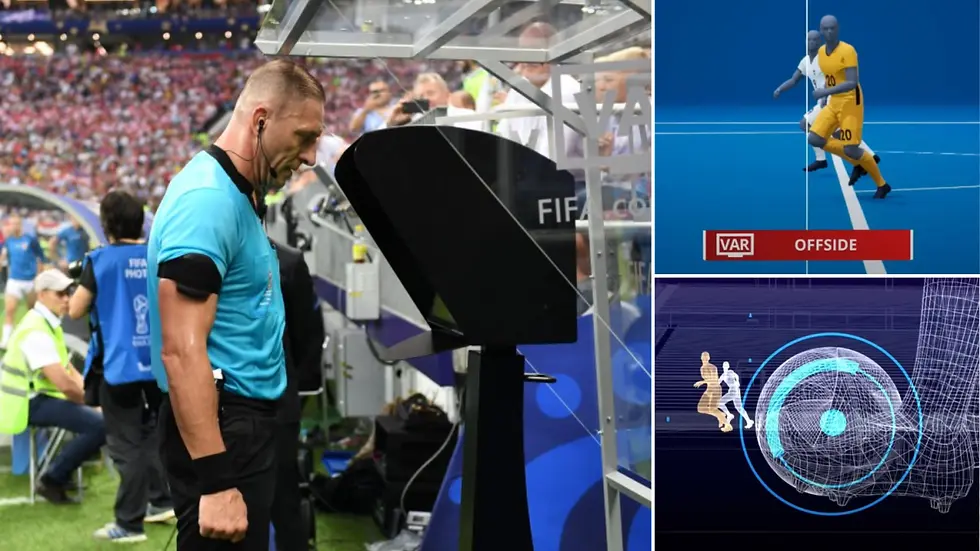AI at the FIFA Club World Cup 2025: A Testing Ground for Tomorrow
- Chris Howell
- Jul 12, 2025
- 3 min read

On Sunday, Chelsea and PSG will clash in the highly anticipated final of the FIFA Club World Cup 2025. Chelsea aims to secure their second title, while PSG is chasing their first. But beyond the footballing drama, this year’s tournament has quietly introduced something even more transformative: artificial intelligence.
This isn’t just a championship—it’s a full-scale trial of cutting-edge AI, reshaping everything from refereeing to real-time data and even stadium security. The Club World Cup 2025 has become a living lab for the future of football, and the results so far have been eye-opening.
Enhanced Semi-Automated Offside: Faster, Smarter, Fairer
Let’s kick off with one of the most impactful innovations: the enhanced semi-automated offside system. Powered by a network of high-speed cameras, sensors embedded in the ball, and algorithms developed with Hawk-Eye, this system tracks player positions and ball movement in real time. The result? Near-instant offside decisions with a margin of precision down to 10cm.
Gone are the days of long VAR delays or players sprinting 40 yards only to be halted by a late flag. The older version of semi-automated offside technology, introduced during the 2022 World Cup, still relied on video officials to manually validate every offside call, even when the system had high confidence. That meant slower decisions, more interruptions, and inconsistent application across matches. Now, with the enhanced 2025 version, clear offside calls are flagged automatically when the margin exceeds 10cm, allowing for instant decisions without human validation. Tight or marginal calls still go to the VAR for review, but the overall process is faster, more consistent, and far less disruptive to the game’s flow.

This new version has already been tested in tournaments like the FIFA Intercontinental Cup and youth competitions. Based on its success at the Club World Cup, it’s a strong candidate for inclusion at the 2026 World Cup.
Real-Time Match Data Like Never Before
Football has always loved stats, but AI is taking them to the next level. Thanks to FIFA’s partnership with the Football Technology Centre AG, this tournament is the first where AI automatically logs nearly every on-pitch action in real time.
Player movement, sprints, tackles, passes, and shot trajectories are captured by camera feeds, wearable tech, and ball sensors—processed instantly and displayed via dashboards for coaches, commentators, and fans. Tactical adjustments can be made mid-game, broadcasters can explain key moments more clearly, and fans get a richer, more interactive experience.
With built-in anomaly detection and quality checks, the system is both fast and accurate. It’s not just about collecting data—it’s about making it meaningful.
Tech Backbone: What Makes It All Work
AI doesn’t operate in isolation. Supporting infrastructure is critical to its success, and FIFA hasn’t cut corners:
Digital Substitution Tablets sync instantly with officials and broadcasters, replacing manual paperwork.
Referee Body Cams offer never-before-seen perspectives of controversial decisions.
Private 5G Networks ensure data travels quickly and securely, even in packed stadiums.
These tools may be less flashy, but they’re the backbone of the tournament’s technological transformation.
Seamless, AI-Powered Security
AI’s influence extends beyond the pitch. Evolv Express scanners have been deployed at all 12 host stadiums, offering a safer and faster way for fans to enter. These systems scan for weapons and prohibited items as people walk through—no queues, no pat-downs.
The fan experience improves, safety is enhanced, and stadiums become more welcoming. It’s a quiet but crucial upgrade that could set the standard for future global sporting events.
A Testing Ground for Tomorrow
This tournament isn’t just about trophies—it’s about testing. FIFA is using the Club World Cup as a controlled environment to evaluate how well these technologies perform under real-world pressure.
The International Football Association Board (IFAB) is watching closely, as are top domestic leagues. If these systems hold up—as they have so far—they’ll likely become fixtures in tournaments and competitions worldwide. The Club World Cup 2025 could very well be the blueprint for the sport’s digital evolution.
The Final Whistle
While Chelsea and PSG battle it out for silverware, the 2025 FIFA Club World Cup might be remembered for something even bigger. This tournament could mark the beginning of a new era—one where AI works hand-in-hand with referees, coaches, and fans to make the game smarter, faster, and fairer.
From automated offside calls to immersive data dashboards and smarter security, football is evolving. Whether you're on the touchline, in the stands, or just watching from home, one thing is clear: the beautiful game has entered a new phase—and artificial intelligence is running the show.

